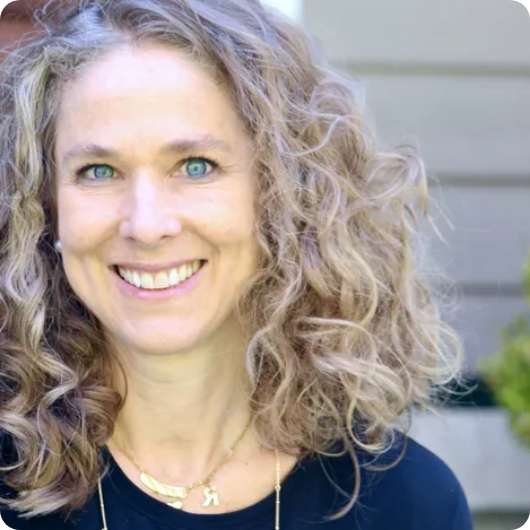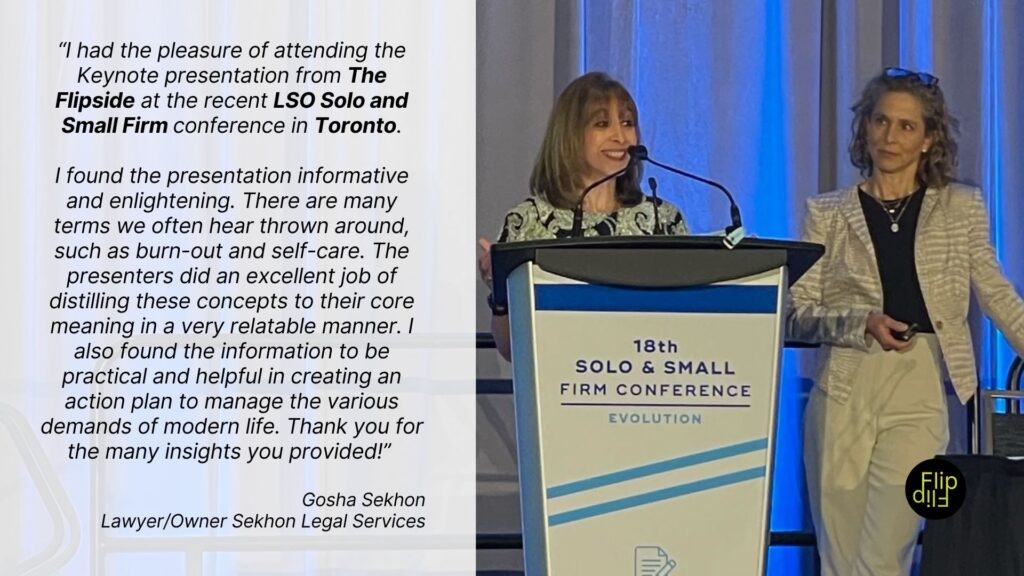Brain
What’s Working Well at 50

It’s become a habit of mine to end the year with a little reflection—a moment to sit with myself and think about what’s worked, what’s been… meh, and what’s keeping me up at night. But also, what’s bringing me joy, because isn’t that what we’re all after?
This year feels a bit more significant because I’ve entered a new decade—a kind of “midpoint” (yes, that’s a generous assumption, I know). So, here’s my rundown, based on The FlipSide’s 6 Foundations of Health, of what’s been working well at 50.
1. Movement:
I’ve always been active—it’s just part of who I am. Maybe it’s my upbringing (very sporty parents) or maybe it’s the endorphins I’m addicted to. Either way, movement has always been a big deal for me. But this year? It changed.
After a nasty fall that messed up my shoulder (yes, I slipped, and it was as ungraceful as it sounds) and an unexpected, long perimenopausal bleeding period (think months, not days), I had to pause my usual exercise routine. No running, no summer swimming. So, in need of draining the frustration at first, I doubled down on strength training. And guess what? It’s been a game-changer.
The research is clear: women in perimenopause need to prioritize muscle health. So, I learned to love the weights, finally figured out how to use gym equipment without looking clueless and learned how to do HIIT with dumbbells without losing my form. The results? More strength, better energy throughout the day, healthy joints, and a couple of kg’s of lean muscle mass (which at 50 feels like winning an Olympic medal). Oh, and no injuries or neck, back or hip pain, since!
Now about walking. Since I had to ditch the runs, my long morning walks with Luna (my dog and new exercise buddy) have become non-negotiable. It turns out walking is more powerful than I ever realized. According to many specialists, the sweet spot for daily steps is 7,000, which already improves health markers like longevity and metabolic health. But here’s the kicker—10,000 steps seem to be even better. So, I’ve been aiming for that magical number most days (except Sundays, which are for rest and brunch).
Walking doesn’t just keep my body moving; those small, constant muscle contractions during the day keep my metabolism humming. Plus, it gives me time to think, breathe, and process ideas that have been mingling in my mind.
What’s next? Stretching. I’ve been avoiding it like it’s an email I don’t want to answer. “I’ll do it later”, and later never comes. But it’s coming back in 2025, so please, hold me accountable.
2. Food:
This year, I fully embraced eating for nourishment—not restriction. I don’t count calories, carbs, gluten, sweets or anything else. Instead, I ask, “What can I add to make this meal as nutritious as possible?” (It’s a great mindset shift.)
Working from home this year has been a gift because I can eat on my schedule. I tend to have two big meals—late morning and early evening—plus a snack if I need it. My plates are colourful, nutrient-dense, and always include kimchi (probiotics!), feta (because yum), at least 8-10 plants and some protein (I can share my pics if you want ideas).
What I’ve learned, though, is how much late-night eating messes me up. If I eat close to bedtime, I can’t sleep well, my stomach protests, and I wake up feeling… off. Eating earlier, at least 3 hours before bedtime, keeps my body and brain happy. Bonus: I’ve found that keeping a 12-14 hour fasting window between dinner and breakfast helps my energy stay consistent, my appetite stable and the (carbs) cravings under control.
3. Sleep:
I’ll say it: I need more sleep at 50. Dr. Christiane Northrup (queen of menopause wisdom) says women need about an hour more sleep than men at this stage, and I am not arguing with her. This year, I’ve learned to treasure sleep. When I get my 7-8 hours, I feel like I can conquer the world. When I don’t, the world conquers me. Simple as that, and everyone at home seems to know it by now, so they also have learned to “protect” my sleep.
The hardest part? Letting go of my boys’ bedtime routine. Until last year, I’d “tuck them in”, and we’d have our nightly rituals. Now? They’re tucking me in and I’m trying to trust they’ll soon turn off the lights, finish their homework and disconnect their devices.
Sleep is always a work in progress and with the challenges of older kids, weekends and longer nights are ones I need to learn how to manage better. In the meantime, my husband is my best ally and the one who safeguards my sleep the most (for his well-being, I believe).
4. Brain Health:
If there’s one thing I’ve always loved, it’s learning. Whether it’s listening to podcasts, reading, or even watching a random documentary, learning keeps my brain alive and kicking. It’s like my daily vitamin for mental fitness. This year, I set a simple goal: learn one new thing every day. And no, it doesn’t have to be groundbreaking—it can be as small as picking up a new word, understanding a new recipe, or discovering a fresh perspective in a conversation. Little things build big knowledge. And this “private” game, seems to be working well.
But here’s a wild part about brain health at 50: perimenopause rewires your brain, and the shift is undeniable. There is a place in the brain called the Amygdala (that’s your emotional command center—the part of the brain responsible for processing fear, threats, and attachment.) As estrogen declines during this phase, the amygdala shrinks and adapts, which means your emotional reactions start to change too (sometimes very erratically, I apologize).
One of the most fascinating shifts for me has been the reduction in emotional attachment to things that used to consume me. I’ve caught myself in moments where I’d normally overthink, obsess, or worry, and instead, I feel… detached. (Is it not cool to admit that this feels liberating?)
At first, I felt a little guilty. How could I not feel as emotionally invested in every little thing? But then I realized, it’s not about losing empathy—it’s about directing energy to what truly matters. This rewiring feels like nature’s way of helping me prioritize better and conserve mental energy. It’s still a work in progress, but I’m learning to lean into this new mental clarity and embrace the freedom it brings, at 50.
If there’s one takeaway for brain health at this age, it’s to keep feeding your mind with what it needs: high-quality food, strength training, knowledge, rest, and (sometimes) permission to let go.
5. Stress:
Stress and I go way back. It’s been my motivator, my adrenaline source, and, at times, my silent saboteur. I’ve always thought I worked well under pressure—and to some extent, I still do. But at 50, the effects of stress aren’t as easy to shake off as they used to be. I see it in my sleep quality, my recovery time after a hectic week, and even in how my body feels after a long day.
This year, my sister gifted me a Whoop band for Christmas. (Side note: she’s also navigating this phase of life, and this gift was her way of saying, “Let’s figure this out together.”) It’s been fun and enlightening. The Whoop tracks everything—stress, recovery, sleep, heart rate variability—and gives me insights into how my body is doing, not just how I think it’s doing. Spoiler alert: my body has been dealing with a lot more stress than I realized.
One of the biggest wake-up calls was seeing how poorly I recovered from high-stress days. Even if I eat well, exercise, and sleep decently, the Whoop data showed that my baseline stress levels are higher than I thought, even while walking my dog on a Saturday. It’s been humbling, to say the least.
So, what could work? Enter breathwork. Now, let me be honest, breathing might be “natural” but “breathing well”, is a different story. The first time I sat down for a breathing exercise, it took what felt like an eternity (actually 5-7 minutes) to take a proper deep breath. My chest felt tight, and I caught myself yawning repeatedly. (Apparently, that’s a sign your body is begging for oxygen—who knew?) But I stuck with it, practicing box breathing and other techniques that encourage longer exhales. Little by little, I’ve started noticing subtle shifts in how I feel after just a few minutes of intentional breathing.
Beyond the immediate calm that breathwork brings, it’s helped me recognize the need for recovery in my daily life and a plan for 2025 (while I stretch). The tracker is part of this picture, at least for a year, to help me understand and improve my stress response and recovery over time. Stress may always be a part of my life, but at 50, I’m learning that it doesn’t have to “run the show”.
6. Time:
I’ve learned that time is my most valuable asset. Juggling a business, family, health, and goals, I see time as something to be intentional with, hence prioritizing my time is essential. (And this is the reason why we just launched “The FlipSide Planner”).
Routines have become my anchor. While life can get chaotic, having a set routine helps me stay grounded and ensures that many areas get the attention they need. Without it, I’d be more stressed (and I don’t want that) as I feel that important areas of my life could slip through the cracks. Routine gives me the framework to balance my day and my well-being.
This year (as every year) elements in my routine have changed in “order of appearance” yet I find I do the same things just shuffled around a bit. As I already said, my nights have become more organized to be able to sleep while the house is awake. Waking up earlier than everyone is still a trend, but weekends have become my “sleep-in” mornings (to get that extra hour I need per day but compounded). Family time is now planned and scheduled, with kids having their agendas, wow, that has been a game-changer. But in the end, having a sense of control of what the week ahead will bring (from food to work, to entertainment and downtime) is still working in my favour.
So, no matter where you are in your life, I hope some of these ideas make you think and pick on your mind to ask yourself:
“What has worked for me this year in these six areas: movement, food, sleep, brain health, stress and time management?”
Share your thoughts and have a joyful and healthy 2025!
Rosana





